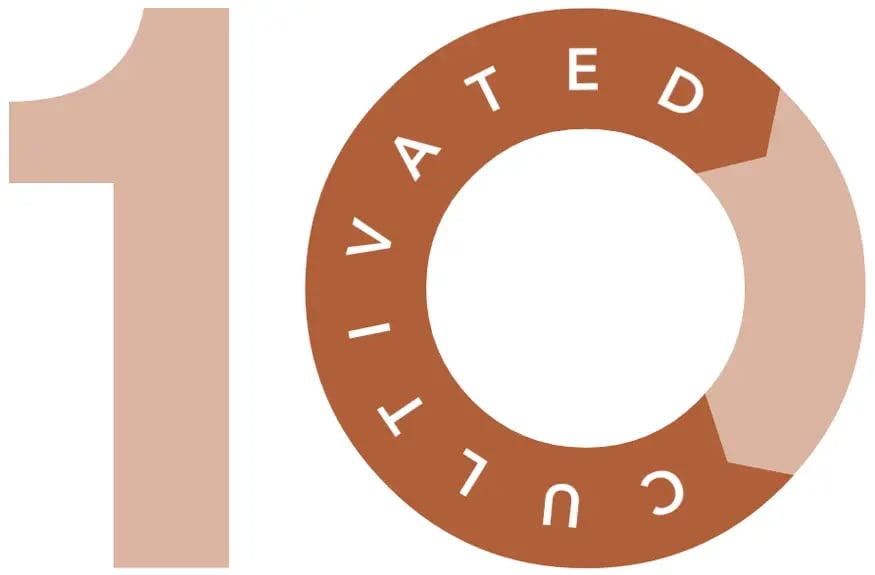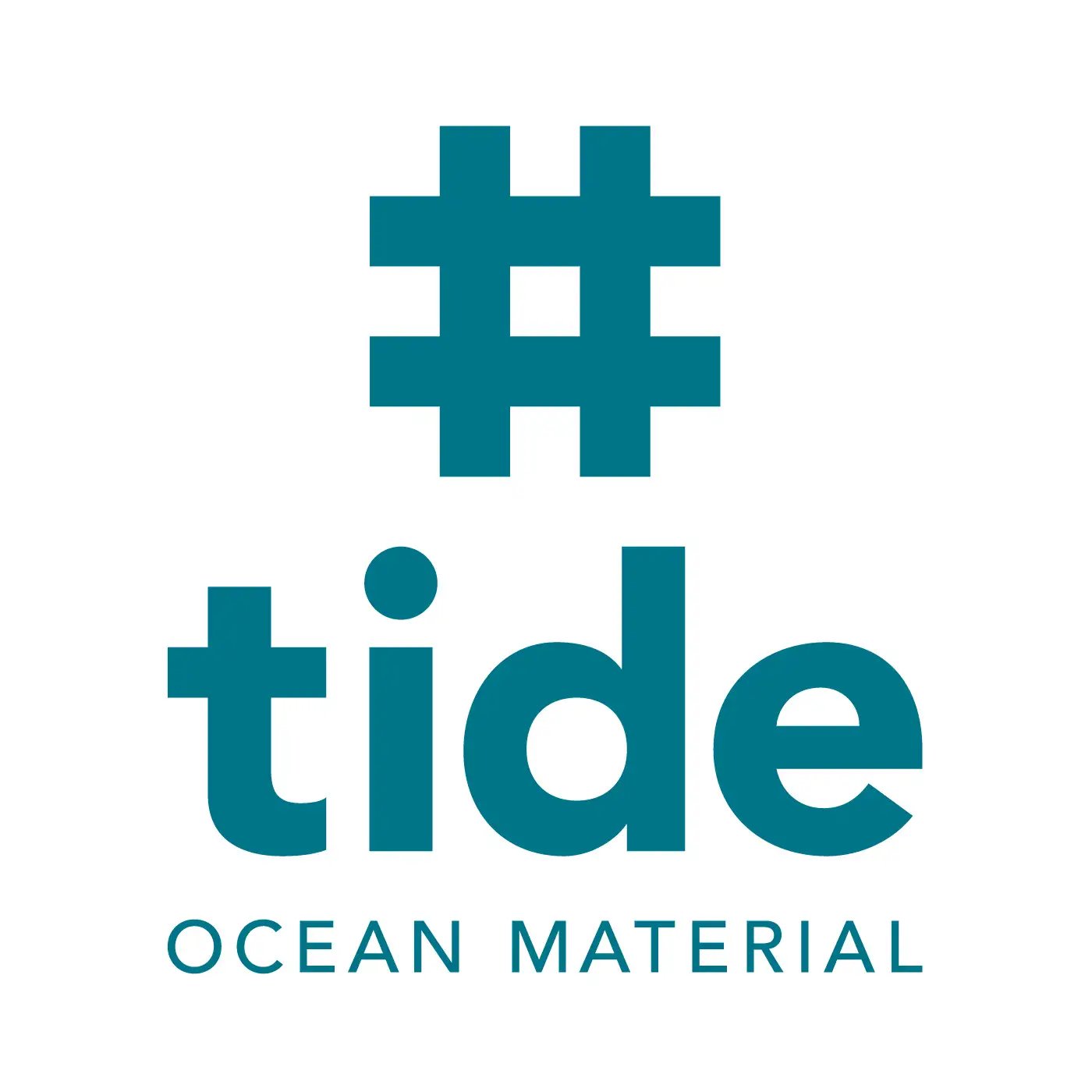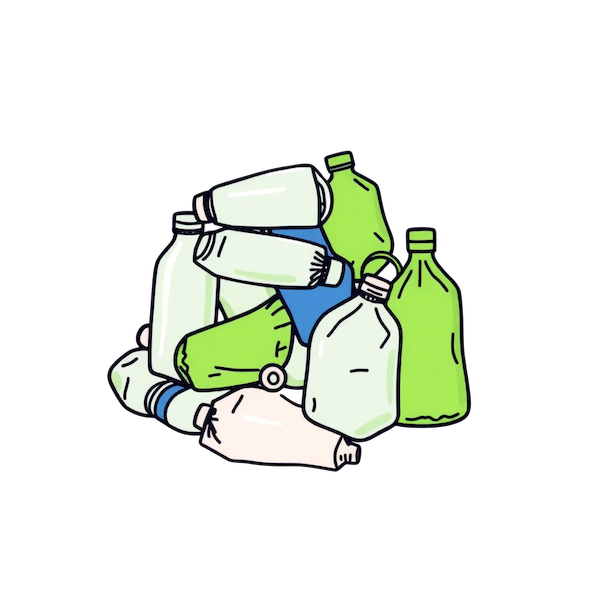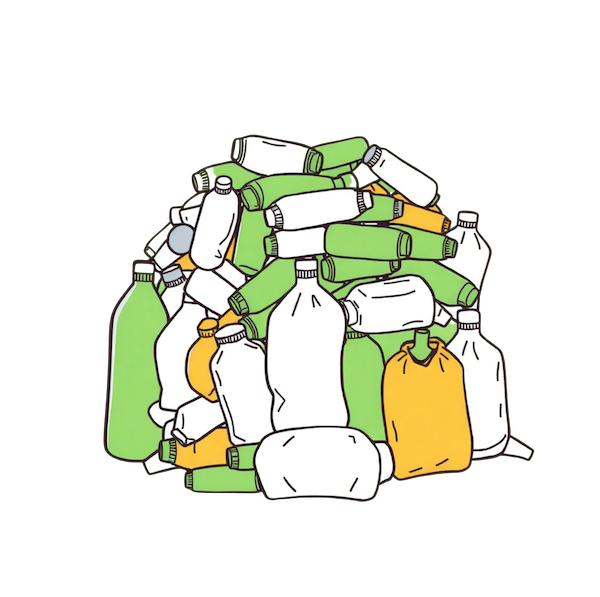Track Every Step, Prove Every Action
Share the story and composition of your products - or material batches - with Empower’s Digital Product Passports.
Trace, Verify & Report with Ease
Revolutionize Your Supply Chain with DPPs
Manufacturers / Brands
Transparent, compliant, fully verifiable yet respectful of information sensitive to your business.
Recyclers
Provide your customers with chains of custody, proof of collection and simplify compliance.
PROs/EPRs
Simplify compliance, ease engagement and stakeholder reporting.
Why Choose Empower
for Digital Product Passports?
Effortless Compliance
Freemium Entry Point
Boost Trust and Transparency
Global Marketplace Integration
Key Compliance Requirements for:
- Material Sourcing: Detailed information on the origin of raw materials, including environmental and social impact data.
- Carbon Footprint: Comprehensive data on the carbon emissions associated with the battery's production and lifecycle.
- Recycled Content: Specific percentages of recycled materials used in the battery's construction.
- Durability Metrics: Data on the battery's expected lifespan and performance metrics.
- End-of-Life Guidelines: Clear instructions for repurposing, recycling, or disposing of the battery responsibly.
From 2026, every industrial and electric vehicle battery in the EU must come with a digital product passport. This initiative aims to enhance transparency and sustainability in the battery industry.
- Material Composition: Detailed breakdown of fibers and materials used in the product.
- Manufacturing Processes: Information on production methods, including dyeing and finishing processes.
- Supply Chain Traceability: Data on each stage of the supply chain, from raw material sourcing to final product assembly.
- Care and Repair Instructions: Guidelines to maximize product lifespan and facilitate maintenance.
- End-of-Life Options: Recommendations for recycling or repurposing the textile product.
The fashion industry is preparing for the adoption of DPPs, with regulations expected to be defined by 2028. Brands are encouraged to start gathering relevant data to ensure compliance and enhance consumer engagement.
- Polymer Identification: Specific details about the type of plastic polymers used.
Additive Disclosure: Information on chemical additives incorporated into the plastic. - Recyclability Information: Data on the product's recyclability and appropriate recycling methods.
- Environmental Impact Metrics: Assessment of the plastic's environmental footprint throughout its lifecycle.
- Compliance Certifications: Proof of adherence to relevant environmental and safety standards.
The EU's Ecodesign for Sustainable Products Regulation includes plastics among the initial product categories requiring DPPs, aiming to improve product transparency and sustainability.
- Material Specifications: Comprehensive details on construction materials used, including sources and properties.
- Energy Efficiency Data: Information on the energy performance of construction products.
- Environmental Declarations: Lifecycle assessments and environmental impact declarations.
- Safety Certifications: Compliance with safety standards and regulations.
- Maintenance Guidelines: Instructions for the upkeep and durability of construction products.
The construction industry is among the first sectors to adopt DPP requirements, with full implementation expected by 2026. This move aims to enhance transparency and sustainability in construction supply chains.
- Component Traceability: Detailed information on electronic components and their origins.
- Energy Consumption Data: Metrics on the energy usage and efficiency of the device.
- Hazardous Substance Disclosure: Identification of any hazardous materials used.
- Repair and Upgrade Information: Guidelines to facilitate product repair and upgrades.
- Recycling Instructions: Clear directions for the responsible recycling of electronic products.
The electronics sector is preparing for DPP adoption, with requirements focusing on enhancing product traceability and sustainability.
- Vehicle Identification: Unique identifiers for vehicles and major components.
- Emissions Data: Comprehensive information on vehicle emissions and environmental impact.
- Material Composition: Details on materials used, focusing on recyclability and sustainability.
- Maintenance and Repair Records: Digital logs of service history and repairs.
- End-of-Life Processing: Guidelines for vehicle dismantling and recycling.
The automotive industry is increasingly focusing on DPPs to enhance vehicle lifecycle transparency and comply with evolving environmental regulations.
How our DPP Builder simplifies Compliance
Fashion: Verify ethical sourcing and end-of-life recyclability
Packaging: Support EPR compliance and circular material design
Consumer Goods: Enable supply chain transparency for sustainability-conscious consumers
Electronics: Ensure regulatory compliance for materials and recycling mandates
.png?width=876&height=1190&name=Frame%2063%202%20(4).png)
Schedule Your Demo
Schedule your demo to start building DPPs in minutes, for free.
Add Lifecycle Data
Upload certifications, materials, and sustainability metrics.
Track & Report Your Impact
Generate real-time dashboards for compliance and transparency.
Your Digital Product Passport Journey, Simplified.
Upload key data like certifications, materials, and sustainability metrics to ensure full traceability. Track your impact with real-time dashboards designed for compliance and reporting. Take control of your supply chain and build trust with verified transparency.
See How DPP Changes the Game
Discover how businesses are using Digital Product Passports to enhance compliance, drive sustainability, and build consumer trust.




Resources to Maximize Your DPP Impact
Calculate Your ROI
with Plastic Credits
Choose your credit types and amount per credit.
Your ROI
$0
Estimated Credits: 0
Empower Platform Fee (20%): $0
DPP Demo
Live preview of the DPP creation tool.
Compliance Checklist
Download a step-by-step compliance checklist to ensure your organization meets all requirements for registering, tracking, and verifying waste collection.
Plastic Credit Calculator
Estimate your earning potential from Plastic Credits and see how your efforts could translate into financial impact.
Calculate Your ROI
with Plastic Credits
Choose your credit types and amount per credit.
Your ROI
$0
Estimated Credits: 0
Empower Platform Fee (20%): $0
Tracing the
Journey of Transformation
The Power of Digital Product Passports
Fair Questions around DPP
A Digital Product Passport (DPP) is a digital record that tracks a product’s lifecycle, providing traceability, compliance documentation, and sustainability data from raw materials to recycling.
DPPs help businesses meet emerging regulations like the EU’s Ecodesign for Sustainable Products Regulation (ESPR) by ensuring transparency in material sourcing, product composition, and end-of-life disposal.
DPPs are becoming mandatory across industries like:
- Textiles & Fashion: Circular economy compliance and material origin tracking.
- Electronics & Batteries: Right-to-repair laws and recycling requirements.
- Packaging & Plastics: Extended Producer Responsibility (EPR) and recyclability standards.
- Automotive: Carbon footprint tracking and supply chain transparency.
- Pharmaceuticals & Medical Devices: Safety, compliance, and counterfeit prevention.
- Consumer Goods: Sustainable sourcing and product lifecycle verification.
Empower’s blockchain-based DPP solution allows businesses to:
- Create & manage DPPs with real-time data input.
- Upload compliance documents and material certifications.
- Track sustainability metrics for reporting and marketing.
- Ensure secure, verifiable traceability from production to end-of-life.
DPPs help brands design for reuse, recycling, and sustainability by providing complete lifecycle tracking, enabling material recovery and reducing waste.
Yes, the EU Green Deal and ESPR regulations will require certain industries to implement Digital Product Passports to provide traceability and sustainability disclosures.
DPPs streamline Environmental, Social, and Governance (ESG) reporting by providing verifiable impact data, material sources, and sustainability performance metrics.
Empower’s DPP platform connects brands with recyclers, manufacturers, and material suppliers, ensuring end-to-end traceability through a centralized digital system.
Yes! Empower offers a Freemium DPP Builder for small and mid-sized businesses to create their first Digital Product Passport for free.
.jpg?width=1291&height=960&name=unnamed%20(17).jpg)
.jpg?width=2000&height=1333&name=unnamed%20(16).jpg)

and transform your supply chain.





